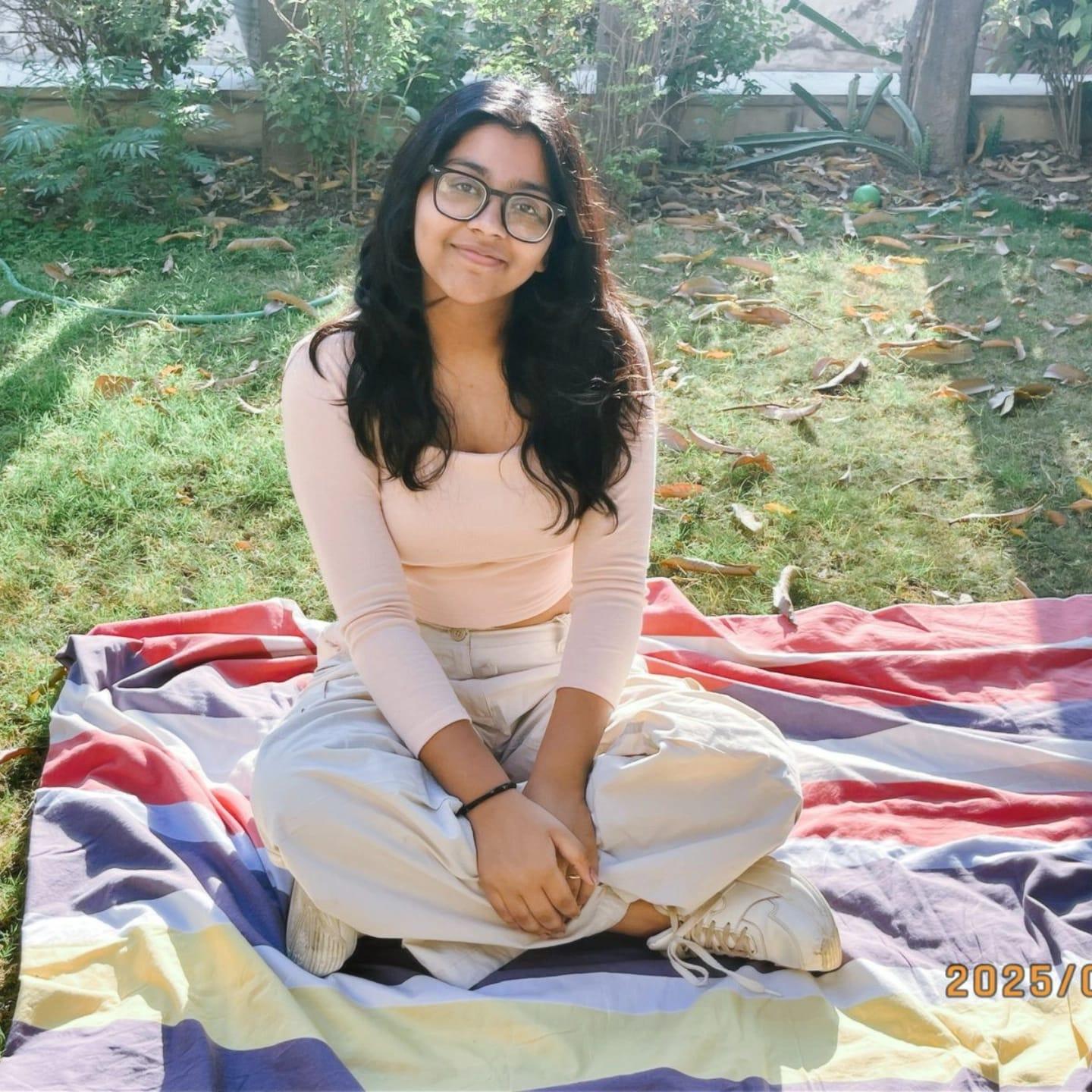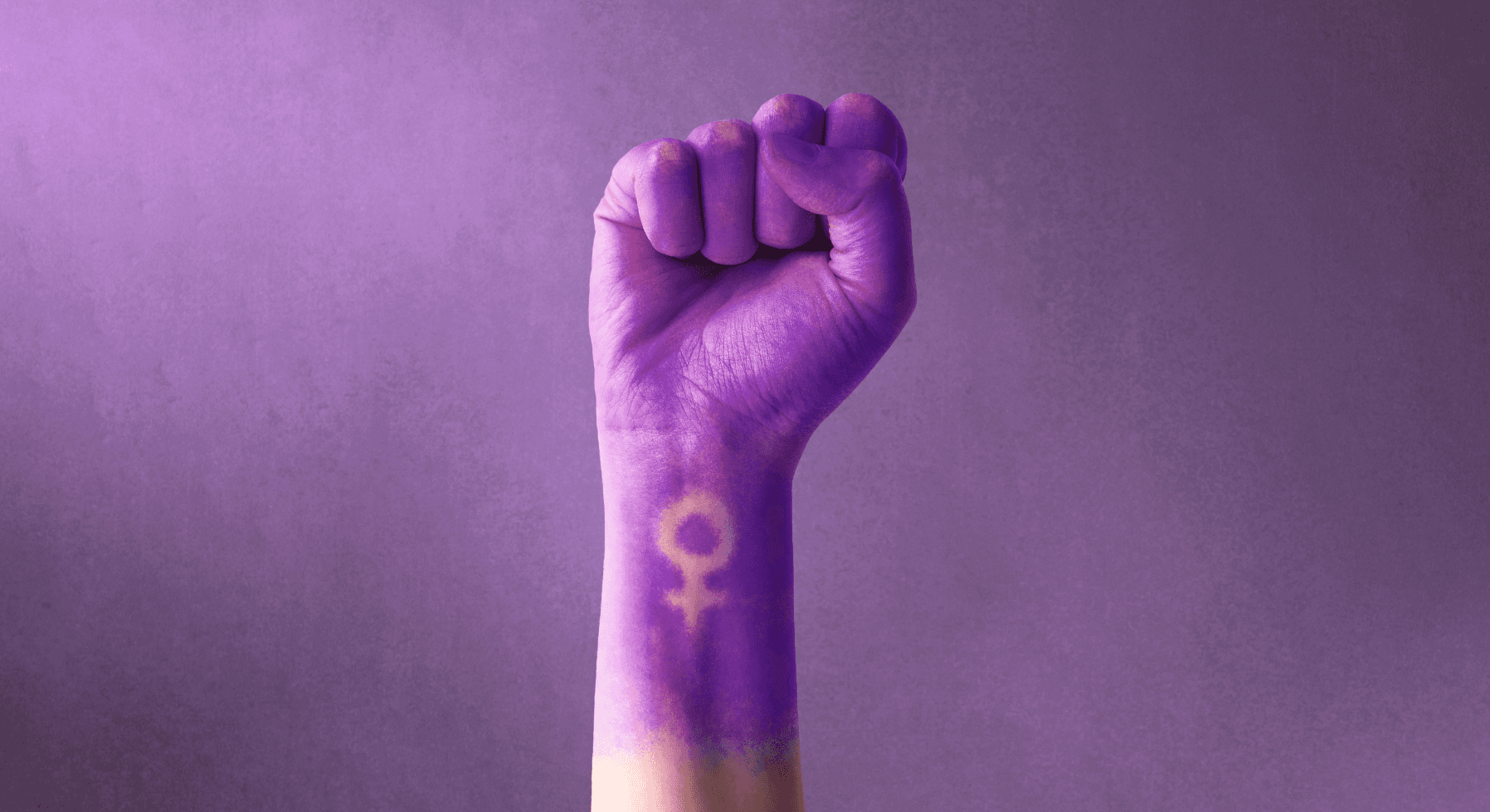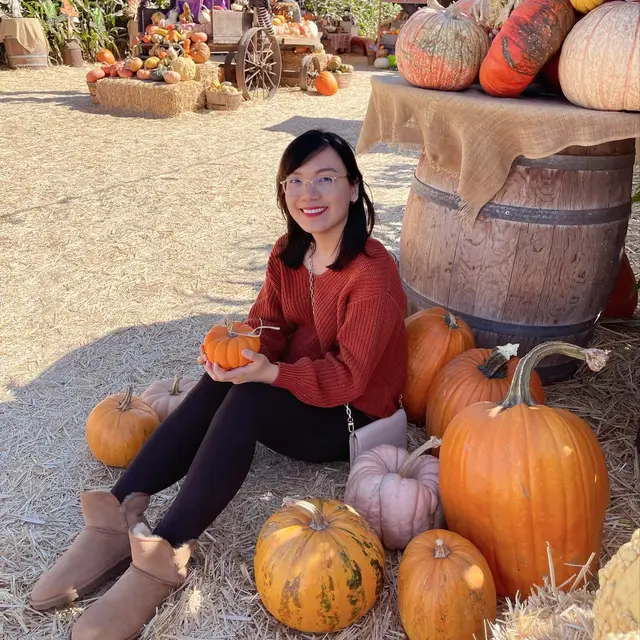When Research Becomes Activism: Inaya’s Story of Purpose and Courage
6 minute read
For Inaya Aggarwal, our 2025 Polygence Research for Impact Scholarship Winner, research became more than an academic pursuit. Her original scholarship idea focused on why women are underrepresented in leadership, but that question soon opened the door to a deeper look at safety, opportunity, and justice. As Inaya explored the issue, she realized that leadership cannot exist without safety. This led her to focus on the realities and consequences of sexual violence, and that shift changed the direction of her project in a meaningful way.
Through her Polygence project, “The Economic Consequences of Sexual Violence on Women: A Case-Based Inquiry in Delhi, India,” Inaya worked closely with her mentor to bring together survivor testimonies, economic data and policy insights. With their guidance, she turned a difficult topic into meaningful research that captures both the human and economic costs of violence and shows how empathy and analysis can work together to spark awareness and change.
After her project wrapped up, we had a chance to connect with Inaya to learn how this project came to life, what motivated her research and how the experience shaped her perspective.

Could you start with a short introduction about yourself and your project?
I’m Inaya Aggarwal, a high school student who has always been drawn to understanding how the world works and how small acts of awareness can create waves of change. My project, “The Economic Consequences of Sexual Violence on Women: A Case-Based Inquiry in Delhi, India,” explores how sexual violence silently damages economies by pushing women out of the workforce, limiting their opportunities, and deepening inequality. It began as a research paper but turned into something far more personal, a call to reimagine safety as an economic right.
How did your idea evolve from your initial concept when you first applied for the scholarship?
When I first applied, I wanted to study women’s underrepresentation in leadership roles. But as I kept reading and reflecting, I realized that leadership is only possible when there is safety. The reality of the Delhi rape cases shook me deeply. I started to see that before we can talk about glass ceilings, we need to talk about the ground itself: whether women feel safe standing on it. That realization changed everything. My project evolved from understanding ambition to understanding survival.
🚀 Launch Your Real-World Project with Expert Guidance 🚀
Create a tangible project, like a research paper, podcast, documentary or prototype. With Polygence, you get to choose the subject, research question, schedule and outcome.
What was your experience like working on your project?
It was emotional, exhausting, and transformative all at once. Reading survivor testimonies felt like carrying a small part of their pain with me. Yet every story also carried strength. I learned that research is not just about data; it’s about empathy. It taught me patience, compassion, and the importance of listening before writing. There were days I cried while compiling reports, but there were also days I felt incredibly hopeful knowing this work could help someone be heard.
What kind of impact do you hope your work will create?
I want my research to make people rethink how they talk about sexual violence. It is not just a moral or legal issue, it is an economic one too. Every woman forced out of the workforce because of fear or trauma represents lost potential, lost innovation, lost growth. I wanted to take my research beyond words, so I created Power in Pink, a Daan Utsav stall dedicated to raising awareness about women’s safety and financial independence. Seeing people stop to listen, learn, and donate was one of the most meaningful moments for me. It reminded me that numbers can move hearts when presented with compassion. I hope my work continues to inspire dialogue and policy that treat women’s safety as essential to a nation’s prosperity.
How was your experience working with your mentor?
My mentor was both a guide and a grounding presence. They taught me that strong research begins with humility, with the courage to say “I don’t know yet.” They helped me structure my ideas and pushed me to ask deeper questions, especially when the topic felt too heavy to carry alone. What I appreciated most was how they never let me forget that behind every dataset was a human life. That reminder shaped the way I think, research, and write today.
Connect With Your Ideal Mentor
Find out how having a mentor can help you explore your interests, stay motivated, and dive into a research project in high school.
What was the most meaningful or challenging part of the process?
The most meaningful part was realizing that research can be a form of activism. It gave me a voice in spaces where silence had settled too comfortably. The hardest part was staying objective when every story felt so personal. I struggled with balancing empathy and evidence, but that tension taught me growth. It reminded me that truth is not always neat or comfortable, sometimes it is raw and trembling, but it deserves to be told anyway.

What advice would you give to future students who want to start a research project?
Start with something that stirs you. Don’t pick a topic because it sounds impressive, pick one that keeps you up at night. Research can be slow and demanding, but passion turns exhaustion into purpose. Be curious, be brave enough to change your perspective, and remember that even small projects can create ripples if they come from honesty and heart.
Tips for Starting a Social Science Research Project in High School
Inaya’s journey is a reminder that meaningful research begins with curiosity, not perfection. If you are hoping to explore a social issue that matters to you, whether it relates to gender equity, public policy, mental health, economics or another area that feels important, these simple tips can help you get started:
Begin with what truly matters to you. The strongest projects come from topics that spark emotion or curiosity, not from what looks impressive on paper.
Ask meaningful questions. Inaya began with a simple but powerful one: "How does sexual violence affect women beyond the immediate harm?" Your main question will guide the direction of your project.
Look for both stories and data. Social science research blends human experiences with evidence. Journals, surveys, interviews and existing studies can all help you build a more complete understanding.
Share what you learn. Whether you create a presentation, build a small website or start a conversation in your community, your work can make a difference.
Meaningful research begins with noticing a problem or pattern that makes you want to learn more. From there, your questions will guide you forward.
🤔 Turn Curiosity into Impact – Get Started Now 🌎
Research isn't just for graduate students or people who wear white lab coats. Your research project can have a big impact.
What are your plans or goals moving forward?
I want to continue exploring the space where economics meets empathy. I see myself working in public policy or gender-focused economic research, building frameworks that quantify the hidden costs of violence and inequality. Through the Global Research Association, which I founded, I also hope to encourage more students to use research as a tool for impact. Additionally, I also have my own blog where I share stories related to feminism. My dream is to build bridges between numbers and people, between theory and change.
Is there anything else you’d like to share about your experience?
This project taught me that stories can be statistics, and statistics can be stories. It reminded me that awareness begins with empathy and that even one voice can spark a conversation. Every survivor’s story I read became a quiet promise to never stop speaking up. This experience was more than research, it was a journey of awakening, one that I will carry with me always.
How Polygence Supports High School Research
Polygence gives high school students the chance to explore meaningful research through the Core program. Students receive one-on-one support from mentors and learn how to develop their ideas with structure, feedback and encouragement. This helps them stay engaged, focused and confident as their projects grow.
Inaya’s experience shows how the journey can become clearer and more meaningful with the right support. She met with her mentor, who guided her in asking deeper questions, gathering both stories and data and shaping her research with clarity and purpose. The structure of the program helped her stay organized and committed, even when the topic felt challenging.
Whether students are interested in social science, public policy, health, economics or another area that matters to them, Polygence offers the guidance and direction they need to turn curiosity into a project they can be proud of.
